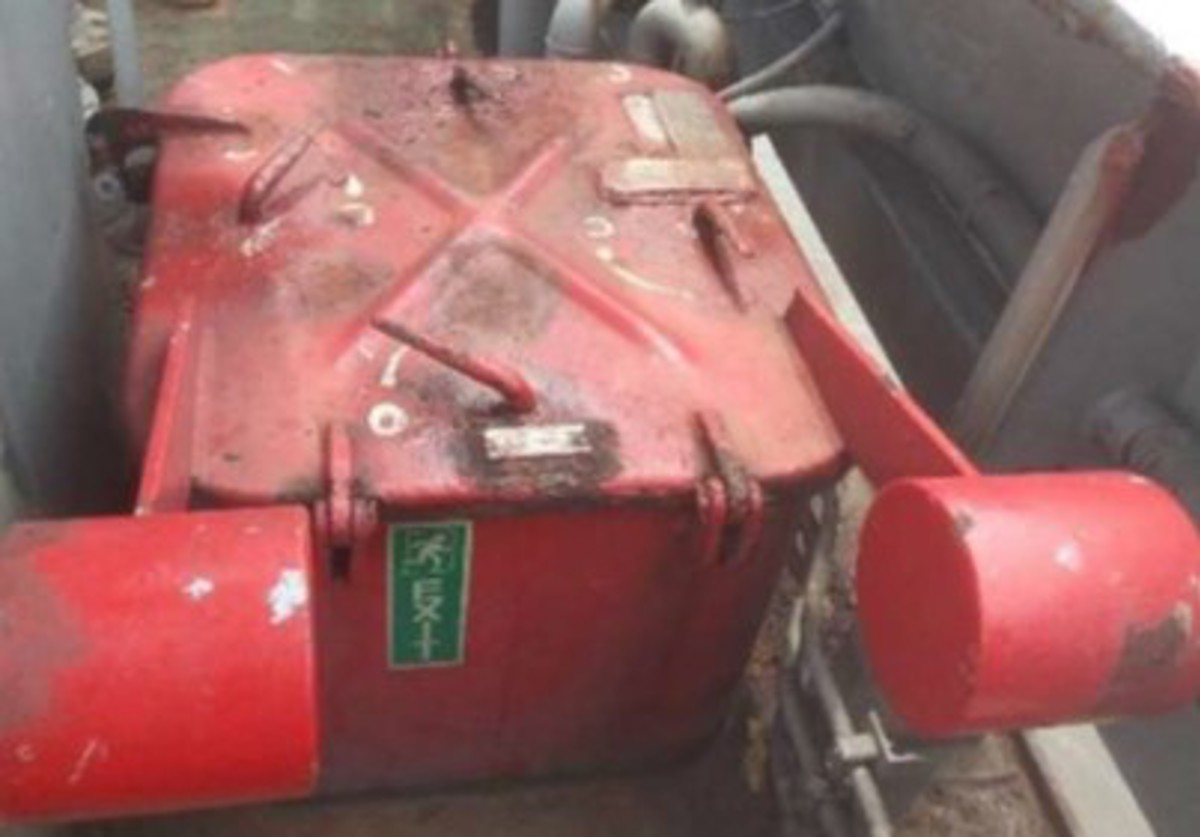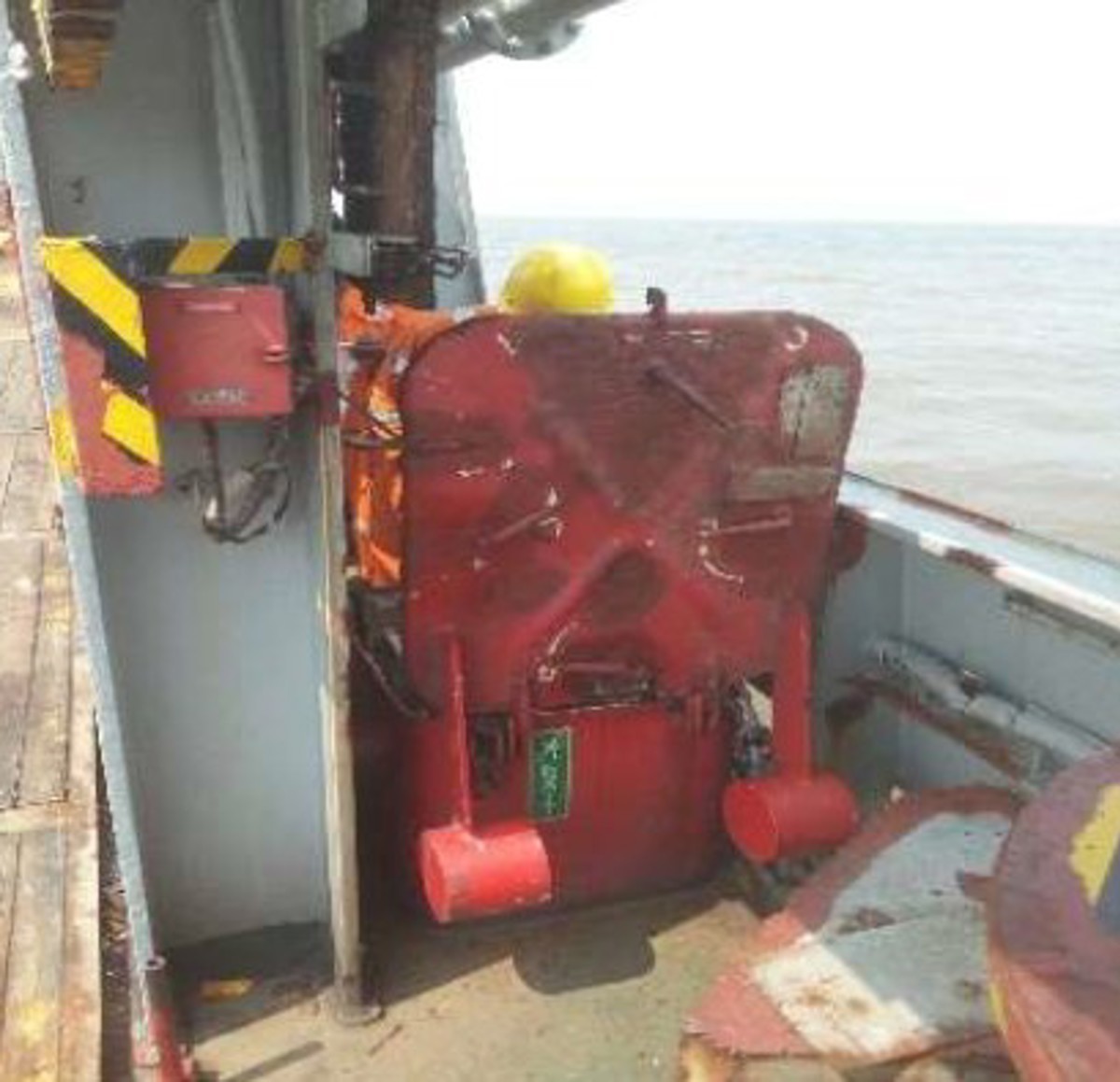Stuck emergency hatch freed
- Safety Flash
- Published on 22 September 2021
- Generated on 17 February 2026
- IMCA SF 26/21
- 1 minute read
Jump to:
It was discovered, during an inspection onboard, that the emergency escape hatch leading from the steering gear compartment to the main deck walkway on the starboard side, was rusted shut, stuck and could not be opened.
What happened?
Emergency hatches and doors should be usable in emergency and ought not impede emergency escape.
What were the causes?
Our member identified that
- The crew was not familiar with the importance of this emergency escape hatch.
- There was a poor maintenance culture.
- Onboard responsibility for safety was neglected.

escape hatch rusted closed

escape hatch made free after greasing
Actions
- Check that all emergency escape hatches and fire doors are always free from obstacles and/or obstruction.
- Add routine inspection of emergency escape hatches to planned maintenance system.
- Ensure hinges are greased and maintained properly.
Related Safety Flashes
-
IMCA SF 19/21
12 July 2021
-
-
IMCA SF 12/21
27 April 2021
-
-
IMCA SF 21/18
17 September 2018
-
IMCA Safety Flashes summarise key safety matters and incidents, allowing lessons to be more easily learnt for the benefit of the entire offshore industry.
The effectiveness of the IMCA Safety Flash system depends on the industry sharing information and so avoiding repeat incidents. Incidents are classified according to IOGP's Life Saving Rules.
All information is anonymised or sanitised, as appropriate, and warnings for graphic content included where possible.
IMCA makes every effort to ensure both the accuracy and reliability of the information shared, but is not be liable for any guidance and/or recommendation and/or statement herein contained.
The information contained in this document does not fulfil or replace any individual's or Member's legal, regulatory or other duties or obligations in respect of their operations. Individuals and Members remain solely responsible for the safe, lawful and proper conduct of their operations.
Share your safety incidents with IMCA online. Sign-up to receive Safety Flashes straight to your email.